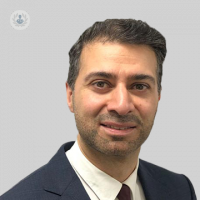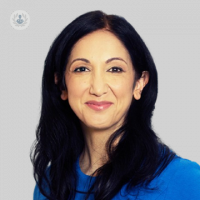What is rheumatology and what is a rheumatologist?
Rheumatology is the medical specialty concerned with
rheumatic conditions which can affect the bones, joints and muscles. Hence, a rheumatologist is a medical specialist who diagnoses, treats and manages
rheumatic diseases.
Arthritis and rheumatology are often thought of together which is because arthritis is one of the most well-known conditions treated by this medical specialty. Paediatric rheumatology is a sub-specialty of rheumatology. Other rheumatology sub-specialties include metabolic bone disease, neurophysiology, sports medicine and autoimmune multi-system connective tissue diseases.
What does a rheumatologist do?
Rheumatologists are medical physicians who diagnose and treat musculoskeletal conditions and autoimmune diseases. Due to the wide-ranging nature of rheumatoid conditions, rheumatology is a multidisciplinary field that works closely with other medical specialists. The
British Society of Rheumatology divides
rheumatic diseases into the following domains:
- Inflammatory arthritis or disease (e.g. rheumatoid arthritis)
- Diagnostics and pain management (e.g. fibromyalgia)
- Auto-immune rheumatic diseases (e.g. vasculitis)
- Bone conditions (e.g. osteoporosis)
- Rare conditions (e.g. sarcoidosis)
What conditions does a rheumatologist treat?
There are many conditions that can be treated by rheumatology consultants, but they are often disorders of inflammation or auto-immunity. Common conditions treated by rheumatologists include:
The following symptoms are possible reasons to see a rheumatologist:
- Sore joints, with signs of inflammation (swelling, rashes, warmth, redness or nodules)
- Fatigue
- Loss of motion in a joint
- Joint stiffness
- Hair loss
- Sun sensitivity
- Lower back pain
- Pain between the shoulder blades and the neck
What kind of tests does a rheumatologist do?
In a rheumatology appointment, the rheumatologist will perform a thorough physical examination in which they will check for signs of inflammation, apply pressure to your joints to check for any pain or soreness, and check your overall health. You may also be asked to stretch your joints and muscles. A rheumatologist will also ask a lot of questions about your symptoms and the history of those symptoms, so it can be a good idea to bring a few notes on these before your appointment. Other tests include blood and urine tests and imaging tests (e.g. X-ray, MRI scan, ultrasounds and a
DEXA scan).
How can I make an appointment with a rheumatologist?
There are several ways to make an appointment with a rheumatologist. You may receive a rheumatology referral, or you might make an appointment directly. Top Doctors can help to find a ‘
rheumatologist near me’, providing information on the right
private rheumatologist or
rheumatology clinic for you. Most major hospitals will have a rheumatology department with several rheumatology consultants, however, there are also dedicated centres in the UK that specialise in the diagnosis and treatment or rheumatic conditions. For example, the
London Rheumatology Centre and the
Chelsea Rheumatology Clinic are both leading institutes for treating rheumatological conditions.



















